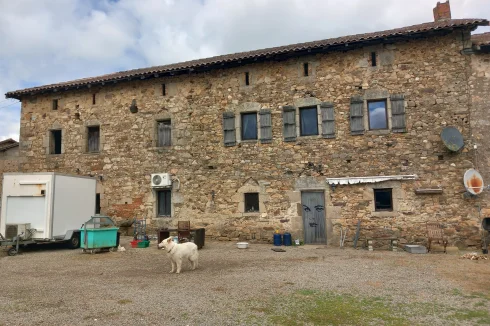Driving in France: Accident Damaged Vehicles
Tuesday 02 June 2009
New regulations have been introduced to increase the level of control on vehicles damaged in a road accident.
In future, any car or light van involved in an accident that is deemed to be unroadworthy by an expert assessor will not permitted back on to the public highway until a further independent inspection of the damage repair has been carried out.
The aim of the reform is to reinforce the detection of those vehicles involved in an accident that may later be taken onto the public highway following repair of the damage, but which may still be unsafe to drive.
For the time being motorbikes and heavy goods vehicles have been excluded from the regulations, although it is anticipated they will also later be required to submit to the same procedures.
Many similar proposals are being introduced across the EU, in compliance with EU directives, although it seems France has made its own particular interpretation of the requirements.
The law already provides that where a police officer attending an accident considers a vehicle unsafe to drive, then the vehicle can be immobilised and the registration certificate (certificat d'immatriculation) withdrawn.
The new regulations now provide for circumstances where a police officer did not attend the accident, but where the vehicle is inspected by an insurance assessor, who will now become an arm of the enforcement authorities.
The inspection report of the insurance assessor has been enlarged to provide specific information to the préfecture on the roadworthiness of the vehicle.
This safety inspection will focus on four key factors – damage to the bodywork, steering, stability, and passenger security.
If the insurance assessor considers the vehicle is unsafe, they will advise the préfecture, who will then formally inform the owner that the vehicle is not permitted on the road until repairs have been carried out, certified by a qualified expert (normally the insurance assessor).
The repairs must also be carried out by a qualified and registered professional.
Where the assessor considers that the damage to the car is beyond economic repair, then the préfecture, along with the insurance company, will be advised accordingly.
For the post-inspection the owner can seek a report from any bon fide expert, although they are equally entitled to call in the insurance assessor who carried out the initial report.
This second report is at the cost of the owner. However, it is anticipated that insurance companies will revise their policies to meet some or all of these costs.
Only once the préfecture have granted their consent, and returned the registration certificate, can the vehicle be permitted onto the road.
Clearly, this whole process is going to increase the time a vehicle remains off the road, but there seems no alternative than to wait until the ban on use of the vehicle has been lifted by the préfecture.
Question marks are already being raised about the effectiveness of these regulations, apart from concern about the bureaucracy that is going to be involved.
Thus, if no police officer attends the scene, then a ban on further use of the vehicle will be determined by the insurance assessor. However, the regulations do not cater for the period between the time the accident occurred and the inspection by the assessor, unless a police officer attended the scene.
There is also concern that the test of whether the vehicle is safe to drive has been restricted to a number of specific criteria. Arguably, there are many items that could affect the safety of the vehicle. The initial inspection list was trimmed substantially following successful lobbying by automobile groups.
Perhaps more importantly, neither do the regulations cater for those owners who only have third party insurance, for it is unclear how owners will be obliged to have the vehicle inspected if they are not going to make a claim on their insurance policy, or the insurance of the other party!
As a result of some of these objections, insurance groups in particular have argued that if vehicle safety is such an important issue, then the frequency of the MOT should be increased from every two years to an annual inspection. That might yet come!
Related article – Vehicle Registration in France
Thank you for showing an interest in our News section.
Our News section is no longer being published although our catalogue of articles remains in place.
If you found our News useful, please have a look at France Insider, our subscription based News service with in-depth analysis, or our authoritative Guides to France.
If you require advice and assistance with the purchase of French property and moving to France, then take a look at the France Insider Property Clinic.





